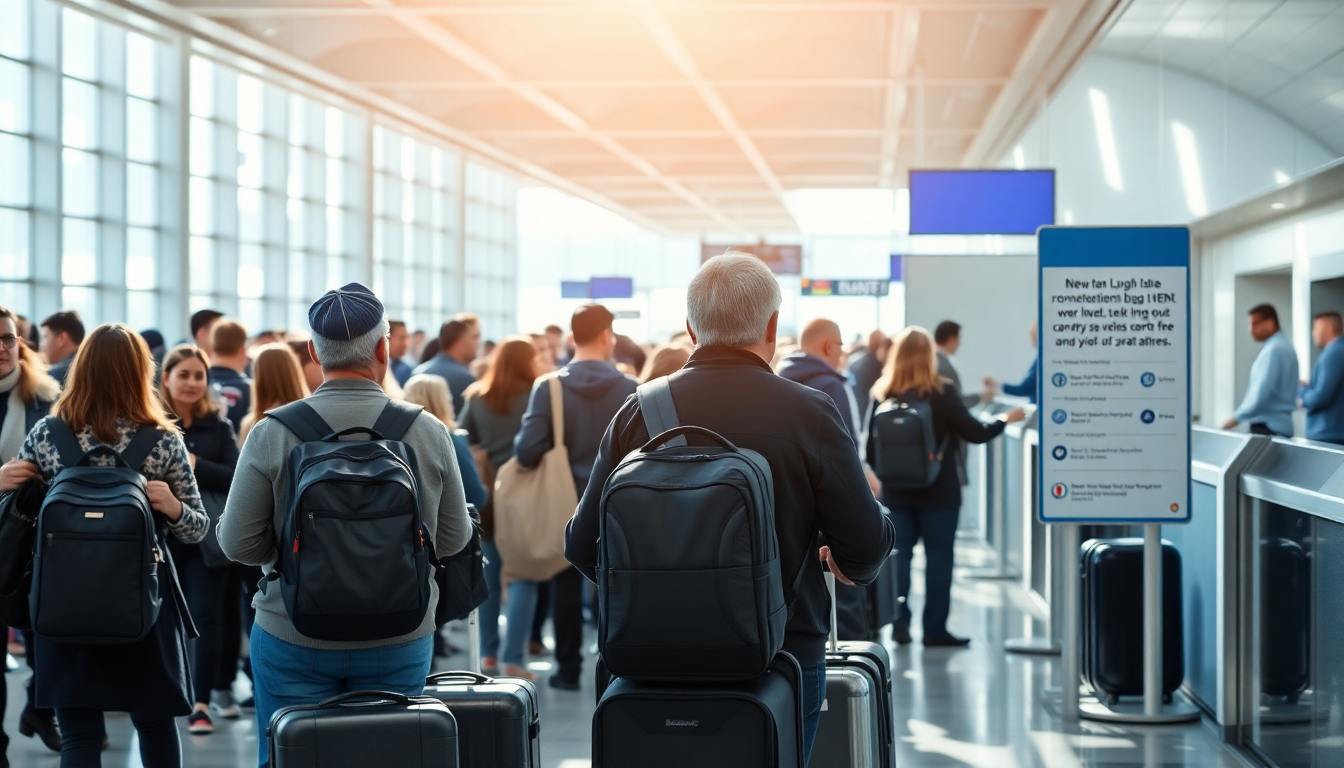Table of Contents
The European Parliament’s transport committee has made a bold move by approving a significant amendment to air passenger rights. But what does this mean for travelers? If this regulation goes through, passengers could enjoy the freedom of carrying on hand baggage weighing up to 7 kilograms for free, alongside a smaller personal item. This proposed change has sparked a lively debate within the aviation industry, with airlines cautioning that fare hikes may be on the horizon as they adjust to these new rules.
Overview of the Proposed Regulation
Leading the charge on this amendment is Matteo Ricci from the Socialists and Democrats. His goal? To create a unified standard for hand baggage across all airlines. Right now, this proposal is part of a larger legislative push aimed at bolstering the enforcement of air passenger rights. The groundwork for these regulations stems from a 2014 ruling by the European Court of Justice, which recognized that hand baggage is a “necessary aspect” of passenger travel, as long as it adheres to certain weight and size guidelines.
However, airlines aren’t taking this lying down. Many are voicing serious concerns about how this regulation could force them to change their pricing strategies. Low-cost carriers, in particular, could feel the pinch since they usually charge extra for larger bags and only allow minimal free carry-ons. Ryanair’s latest financial report underscores this point, showing that fees for baggage make up a significant chunk of their income.
Despite pushback from airline lobbyists, a diverse coalition of political factions within the European Parliament is rallying behind this amendment. Their argument? Improving passenger rights ultimately benefits consumers and fosters fair competition among airlines. Isn’t that something we can all get behind?
Implications for Airlines and Passengers
If this regulation gets the green light, it could dramatically change how airlines handle carry-on luggage. Imagine a 7 kg limit reshaping the business models of low-cost carriers that thrive on charging for larger bags. There’s also some worry about potential boarding delays if passengers start bringing larger bags onboard that might not fit in the overhead compartments. Can you picture the chaos?
Airline representatives have expressed that accommodating a trolley bag for each passenger could be unrealistic, especially with the limited space in typical aircraft cabins. To address these concerns, the new regulation proposes that baggage can be stored either in the cabin or in the aircraft hold, which could help ease some of the logistical headaches during boarding.
Consumer advocates are cheering for these proposed changes, seeing them as a much-needed update to air travel policy that aligns with modern consumer expectations. The chance to travel with both a personal item and hand baggage at no extra cost not only enhances the travel experience but also adds a layer of convenience for all passengers.
Future Considerations and Conclusion
The final shape of the regulation will depend on the ongoing negotiations between the European Parliament and the Council of the EU. With Spain signaling its support for the changes, the chances of implementation seem to be rising. Yet, the aviation lobby remains a formidable opponent, arguing that these regulations could disrupt their business models. Will they succeed in swaying the decision?
As discussions progress, it’s crucial for all parties involved to strike a balance between consumer rights and the operational realities of airlines. While the proposed regulations could lead to a more consumer-friendly travel environment, they also raise challenges that warrant careful consideration. Ultimately, how this legislative process unfolds will have a significant impact on the future of air travel in Europe. Will we see a more accommodating flying experience on the horizon?


